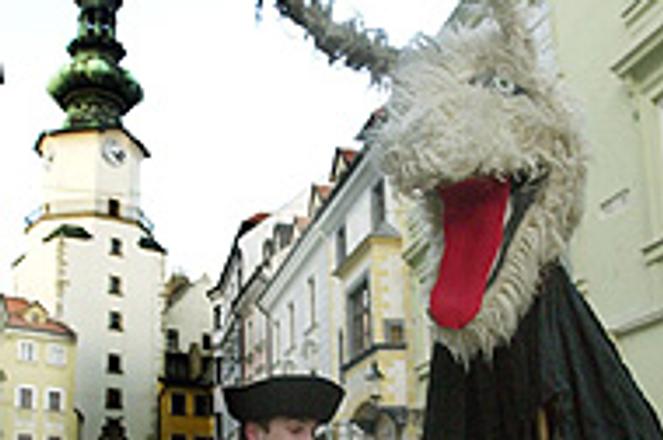Bratislava's traditional fašiangy.
photo: TASR
FAŠIANGY, or Shrovetide, is the carnival period between the Epiphany (January 6) and Ash Wednesday (which falls on March 1 this year). Celebrants traditionally wear masks of devils, witches, wolves and bears and gather to dance and have fun.
This tradition is mainly alive in villages but some organisers of city balls have been reviving it to enrich their dancing parquets. Typical delicacies, such as baked doughnuts (šišky or fánky) and pork sausages, decorate the tables and mulled wine or slivovica is poured into glasses.
Fašiangy used to be the merriest part of the year with lively dancing and rich feasting.
It culminated with a masked carnival procession (fašiangový sprievod) and the burial of a double bass (pochovávanie basy), when musicians would sing farewell songs to the instrument. Next came the period of fasting called Lent (pôst). These traditions have survived in some part of the country.
You can hear the double bass before it is buried this year as its voice floats through the streets of Nitra and Bratislava in the coming days. The capital holds its fašiangy celebration on Hviezdoslavovo Square and the Old Market on February 28, the same day that Nitra is holding its Fašiangy carnival at Svätoplukovo Square.
And remember, if you come in costume, you can win a prize.
- ZH


